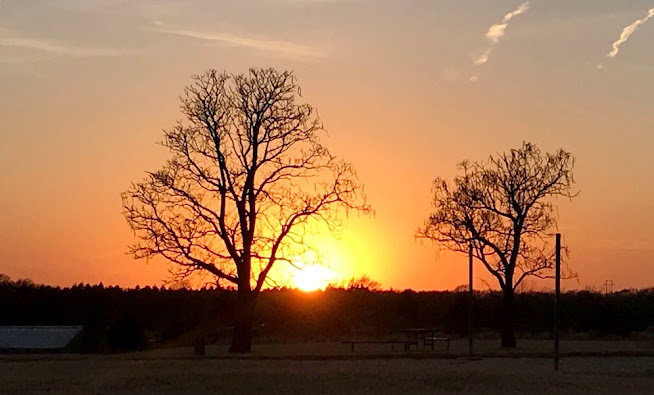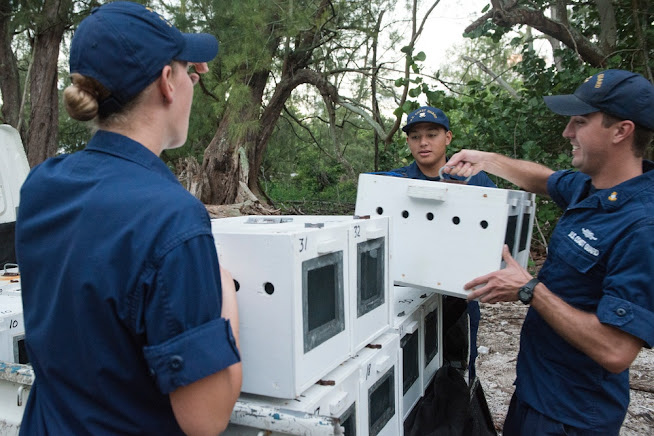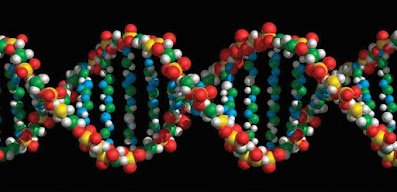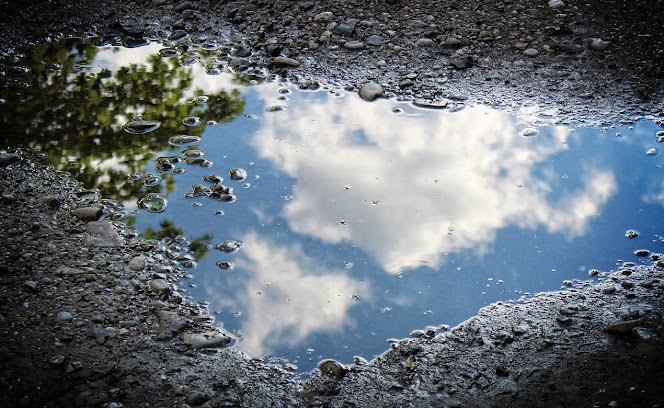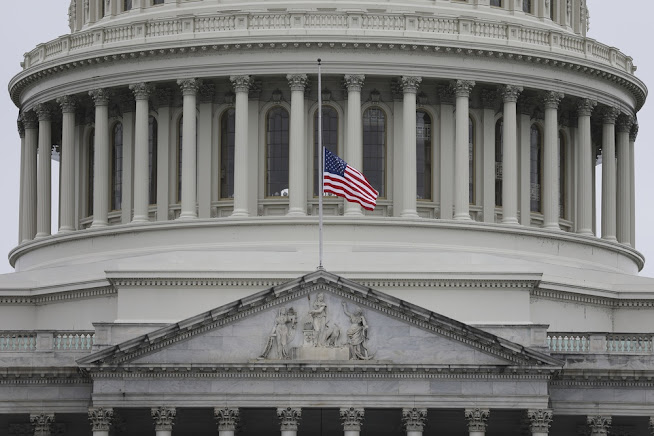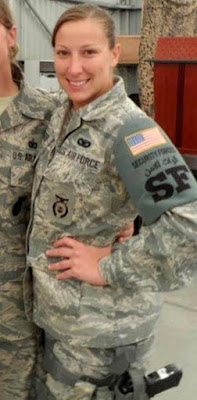Review by Bill Doughty––
What do an evolutionary biologist/entomologist and Southern Baptist pastor have in common?
E. O. Wilson attempts to find out in “The Creation: An Appeal to Save Life on Earth” (W. W. Norton & Company, 2006). This is one of more than two dozen books Wilson wrote in his long lifetime. He died this week at 92.
“The Creation” may not be his most famous works –– such as “Sociobiology,” “The Ants,” “Consilience,” and (one of my favorites) “The Diversity of Life” –– but it’s one his most relevant today in its outreach to promote empathy, cooperation, and commitment to saving our environment in the face of climate change and other threats.
Wilson, raised as a Baptist but converting to secular humanist, looks for common ground between religion and science.
On ways to “salvation” and unity:
“Does this difference in worldview separate us in all things? It does not. You and I and every other human being strive for the same imperatives of security, freedom of choice, personal dignity, and a cause to believe in that is larger than ourselves.”
On Nature = The Creation:
“Because we are part of it, the fate of the Creation is the fate of humanity.”
 |
Chimborazo and Tungurahua, Ecuador (NASA) |
On Human Impact:
“Yet humanity is already the first species in the history of life to become a geophysical force. We have spread thousands of toxic chemicals worldwide, appropriated 40 percent of the solar energy available for photosynthesis, converted almost all of the easily arable land, dammed most of the rivers, raised the planet sea level, and now, in a manner likely to get everyone’s attention like nothing else before it, we are close to running out of water. A collateral effect of all this frenetic activity is the continuing extinction of wild ecosystems, along with the species that compose them. This also happens to be the only human impact that is irreversible.”
 Naval Hospital/Navy Medicine Readiness Training Command Bremerton’s Nature Trail helps preserve nature. (Douglas H Stutz) |
On Commonality + Equilibrium = Balance
“Living nature is nothing more than the commonality of organisms in the wild state and the physical and chemical equilibrium their species generate through interaction with one another. But it is also nothing less than that commonality and equilibrium. The power of living Nature lies in sustainability through complexity. Destabilize it by degrading it to a simpler state, as we seem bent on doings and the result could be catastrophic. The organisms most affected are likely to be the largest and most complex, including human beings.”
On Passion for Learning:
“The basic ingredient for a love of learning is the same as for romantic love, or love of country, or of God: passion for a particular subject. Knowledge accompanied by pleasurable emotion stays with us. It jumps to the surface and, when summoned, triggers other memory linkages to create metaphor, the cutting edge of creative thought.”
Wilson’s curiosity as a lifelong teacher and student is contagious as he explores topics such as fire ants and West Indies plague ants, the pitchfork ant, wolverines, the Grizzly Bear Effect, Layson ducks, Biophilia, nature/nurture, bioblitzes and “the world’s most beautiful tree,” the Japanese maple.
 |
A Naval Support Facility Diego Garcia team cleans a beach, Apr. 23, 2021.(SN Stevin Atkins) |
Navy readers will be interested in what Wilson has to say about humans’ plundering and polluting of the oceans, issues the U.S. Navy and U.S. Coast Guard work together to address and combat.
“The first five spasms took ten million years on average to repair by natural evolution. A new ten-million-year slump is unacceptable. Humanity must make a decision, and make it right now: conserve Earth’s natural heritage, or let future generations adjust to a biologically impoverished world.”
“Blinded by ignorance and self-absorption, humanity is destroying the Creation. There is still time to assume the stewardship of the natural world that we owe to future human generations.”
The great extinction of species is explained in the acronym HIPPO: Habitat loss, Invasive species, Pollution, over-Population, Over-harvesting:
“When a species declines toward extinction, not one but two or more factors are usually responsible. Thus overfishing in the sea with bottom drag nets (O) has simultaneously destroyed (H) the sea floor habitat on which bottom species such as cod and haddock depend. When an endangered bird or some other species is restricted to a single small population by habitat destruction (H), it becomes more susceptible to invasive predators and disease (I), pollution (P), and over harvesting (O). Much of the science of conservation biology is devoted to the teasing apart of these malign forces in order to weigh their importance, then to nullify them.”
But there is hope, starting with an innate love of nature and the natural world, what is now studied as Environmental Psychology and Conservation Psychology. Wilson says, “The affiliation has a moral consequence: the more we come to understand other life forms, the more our learning expands to include their vast diversity, and the greater the value we will place on them and, inevitability, on ourselves.”
Chapter IV is titled “Teaching the Creation.” Wilson writes, “The only way to save the diversity of life and come to peace with nature is through a widely shared knowledge of biology and what the findings of that science imply for the human condition.”
Wilson taught biology at Harvard, and he learned five key principles to teaching:
- Teach top-down –– Start with the bigger picture and make it relevant to students, then peel away down to the foundation.
- Reach outside biology –– Embrace the diverse disciplines in biology and discoveries in emerging interdisciplinary interconnectedness.
- Focus on problem solving –– Be more problem-oriented, and less discipline-oriented as you look for synthesis and new ways of thinking.
- Cut deep and travel far –– Specialize and commit (“For future biologists, I offer the same advice I gave hundreds of students at Harvard regardless of their career plans. As soon as you feel comfortable doing so, choose a part of biology to which you then commit yourself, and treat the rest of biology as general education. Trust your instincts, press on … follow your heart.")
- Commit yourself –– Return to passion and love for the subject and find “mentors to trust, heroes to emulate, and accomplishments that are real and enduring” to further develop self-confidence.
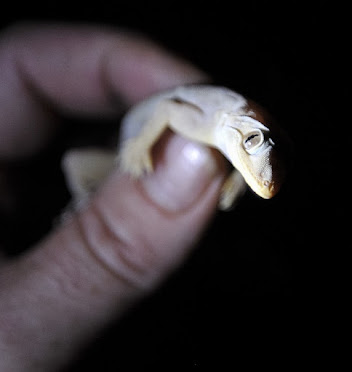 |
I recently listened to an interview with E.O. Wilson on a science podcast, and he encouraged field trips for young biology scientists-to-be rather than rote learning of math, chemistry, and physics. He acknowledges in “The Creation,” that passion can come “in a multiplicity of unpredictable forms,” including from caring people and, no doubt, from books. Field trips provide the bigger picture, find interconnectedness, solve problems, help choose a part of biology, and achieve commitment to a passion.
A Smithsonian biologist holds a lizard collected at Camp Lemonnier, Djibouti, May 8, 2014. (MC1 Eric Dietrich)
Naturally (no pun intended), he encourages introducing children to nature at an early age. “Provide opportunities to explore the outdoors and its surrogates in zoo and museum exhibits. Let the child search, alone or in small, like-minded groups. Let him disturb nature a bit, on his own and without coaching. Provide field guides, binoculars, and even microscopes, at home if possible and at least at school … Let him learn at his own pace. At the end of this process he may choose a career in law, marketing, or the military, but he will be a naturalist all his life, and thank you for it.”
In a brief but fascinating aside related to field trips, Wilson shares a story about visiting the cellblock where his great-grandfather had been imprisoned on Georges Island, Boston Harbor, for being a Confederate naval blockade runner captured in 1863 at the entrance of Mobile Bay.
Wilson participated in an extensive chronicling of species around the Boston Harbor Islands.
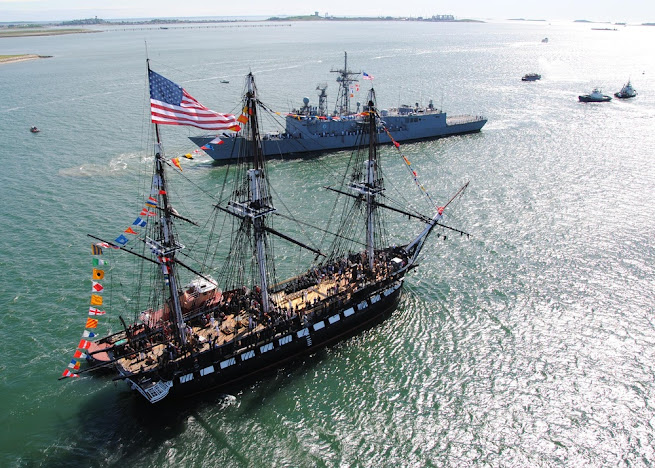 USS Constitution greets USS Carr in Boston Harbor during a Battle of Midway commemoration. (Kathryn Macdonald) |
A Personal Journey
This book is addressed directly to religious people and indirectly to people who understand the world through science. E.O. Wilson explains biology within the laws of what’s known about chemistry and physics, but he is sensitive to the beliefs of others in his search for common ground in the ethics of protecting the Creation.
Wilson writes, “To be a naturalist is not just an activity [such as bird-watching] but an honorable state of mind. Those who have expressed its value and protected living Nature are among America’s heroes: John James Audubon, Henry David Thoreau, John Muir, Theodore Roosevelt, William Beebe, Ado Leopold, Rachel Carson, Roger Tory Peterson.” Of course, E.O. Wilson is part of that pantheon.
He concludes “The Creation” with a brief chapter, again a personal message to his imaginary “pastor,” offering a way to see past vast differences:
“What are we to do? Forget the differences, I say. Meet on common ground. That might not be as difficult as it seems at first. When you think about it, our metaphysical differences have remarkably little effect own the conduct of our separate lives. My guess is that you and I are about equally ethical, patriotic, and altruistic. We are products of a civilization that rose from both religion and the science-based Enlightenment. We would gladly serve on the same jury, fight the same wars, sanctify human life with the same intensity. And surely we also share a love of the Creation.”
His advice resonates particularly well in the aftermath of the insurgency of 1/6/2021, and is worth hearing at the end of a tumultuous year and beginning of a potentially fraught 2022.
Wilson's appeals to everyone to get on board are woven throughout this books.
In a blurb for another Wilson book, “Half Earth: Our Planet’s Fight for Life,” Stephen Greenblatt writes:
“Edward O. Wilson possesses a rare, almost unique, combination of immense scientific knowledge and deep humane intelligence. Looking around him at the beloved natural world he has done so much to understand and taking the measure of the massive damage to it caused by human stupidity and greed, he has every reason to succumb to despair. But ‘Half-Earth’ is not a bitter jeremiad. It is a brave expression of hope, a visionary blueprint for saving the planet.”
Greenblatt is the author of “The Swerve,” reviewed Dec. 27 on this blog.
 A bull elk leads his heard into the woods on Fort Hunter Liggett, Calif., July 17, 2012. (Sgt. Michael Connors) |
|
Top photo by Christopher Larsen. |
